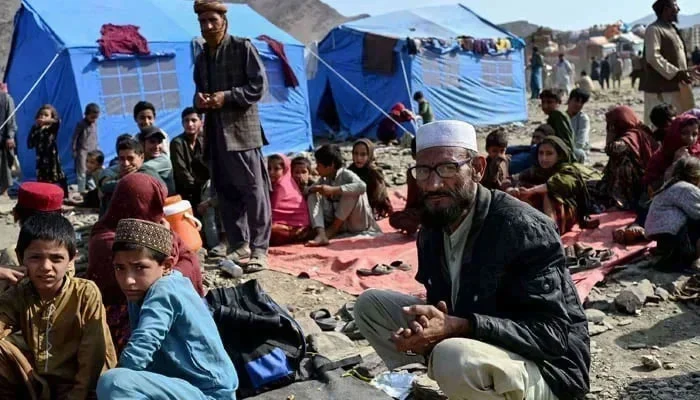
In a decisive step toward executing Pakistan’s deportation plan, the Afghan refugee repatriation process has accelerated in Punjab as the Federal Investigation Agency (FIA) forms eight dedicated teams to handle the operation. This move follows the federal government’s directive to expel undocumented and illegal Afghan nationals from the country.
FIA Forms Regional Teams for Repatriation
According to an FIA spokesperson, five teams have been assigned to Lahore, while three will operate in Sheikhupura, Nankana Sahib, and Kasur. Senior FIA officials will lead these teams, including Assistant Director Sajid Amin in Lahore, Imran Bhatti in Sheikhupura, Babar Shaharyar in Nankana Sahib, and Rana Bilal in Kasur.
Before deportation, refugees in Lahore will be temporarily housed at designated shelters across the city. These include Thokar Niaz Baig, Railway Station, Data Darbar, Sabzi Mandi, and Lari Adda.
Government Pushes Forward with Deportation Plan
The federal government had earlier announced March 31 as the deadline for all illegal Afghan nationals, including holders of Afghan Citizen Cards (ACC), to return voluntarily. Since then, law enforcement and immigration authorities have ramped up efforts to ensure compliance.
In Punjab alone, 4,111 undocumented migrants have been deported so far. An additional 5,950 individuals have been moved to 46 holding centres established across the province. Currently, 1,839 of them remain in these centres.
Read: Karachi Road Rage: Woman Fires Gun After Minor Crash, Both Drivers Arrested
Holding Centres Set Up Across Punjab
The province has developed a detailed network of temporary shelters. Lahore alone has five such centres, offering basic facilities before refugees are transported to the Torkham border or other exit points.
Punjab Inspector General of Police Usman Anwar emphasized the importance of completing the process while respecting human rights. He directed law enforcement heads, including city police officers and district police officers, to carry out thorough screening, documentation, and biometric verification of all detainees.
Who Are the Afghan Refugees?
Pakistan has hosted Afghan refugees for decades. Today, roughly three million Afghan nationals live in the country, classified into four categories:
-
Proof of Registration (PoR) Cardholders: Around 1.3 million refugees received official recognition through PoR cards issued in 2007. These cards remain valid until June 30, 2025.
-
Afghan Citizen Card (ACC) Holders: About 800,000 individuals were issued ACCs in 2016. Though previously allowed to stay, their presence is now deemed illegal under current deportation orders.
-
Post-2021 Asylum Seekers: Following the Taliban’s return to power, a new wave of Afghan refugees entered Pakistan. While the government estimated 600,000 arrivals, UNHCR confirmed only 200,000 registered asylum seekers.
-
Undocumented Migrants: This group includes Afghans without any legal documentation. Many in this category have used forged national IDs or entered through informal channels.
Ongoing Identity Verification Drive
In recent years, Pakistan’s National Database and Registration Authority (NADRA) launched the National Verification and Renewal Drive. This initiative aims to cancel fake identity cards and remove fraudulent entries from national records. Individuals flagged through this process are now being treated as illegal residents.
The government’s sweeping repatriation campaign reflects rising security concerns and a shifting immigration policy, with national stability and lawful residency taking precedence as authorities enforce stricter border controls.
Follow us on Google News, Instagram, YouTube, Facebook,Whats App, and TikTok for latest updates












